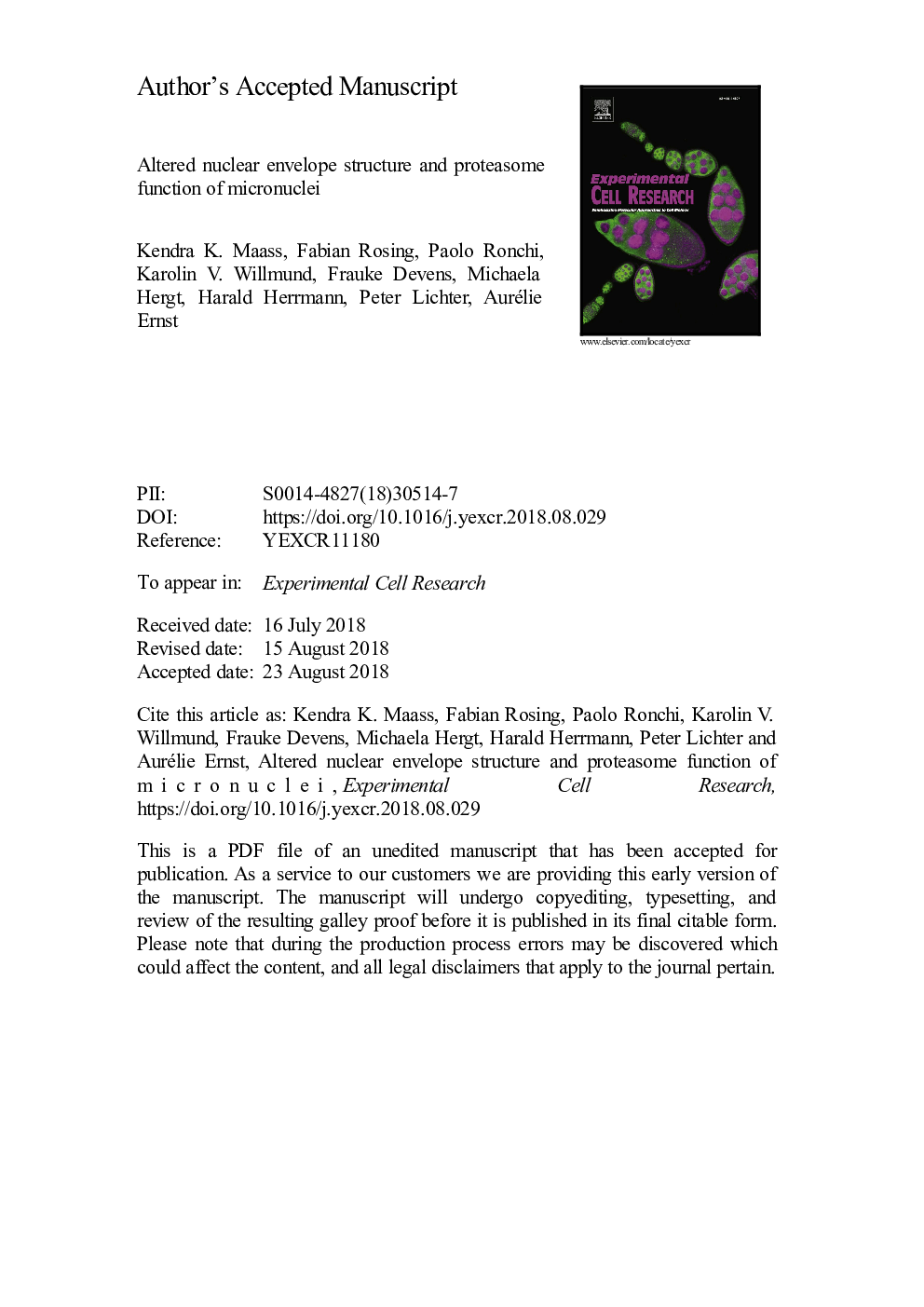| Article ID | Journal | Published Year | Pages | File Type |
|---|---|---|---|---|
| 10157672 | Experimental Cell Research | 2018 | 31 Pages |
Abstract
Micronuclei are extra-nuclear bodies containing whole chromosomes that were not incorporated into the nucleus after cell division or damaged chromosome fragments. Even though the link between micronuclei and DNA damage is described for a long time, little is known about the functional organization of micronuclei and their contribution to tumorigenesis. We showed fusions between micronuclear membranes and lysosomes by electron microscopy and linked lysosome function to DNA damage levels in micronuclei. In addition, micronuclei drastically differ from primary nuclei in nuclear envelope composition, with a significant increase in the relative amount of nuclear envelope proteins LBR and emerin and a decrease in nuclear pore proteins. Strikingly, micronuclei lack active proteasomes, as the processing subunits and other factors of the ubiquitin proteasome system. Moreover, micronuclear chromatin shows a higher degree of compaction as compared to primary nuclei. The specific aberrations identified in micronuclei and the potential functional consequences of these defects may contribute to the role of micronuclei in catastrophic genomic rearrangements.
Keywords
Related Topics
Life Sciences
Biochemistry, Genetics and Molecular Biology
Cancer Research
Authors
Kendra K. Maass, Fabian Rosing, Paolo Ronchi, Karolin V. Willmund, Frauke Devens, Michaela Hergt, Harald Herrmann, Peter Lichter, Aurélie Ernst,
